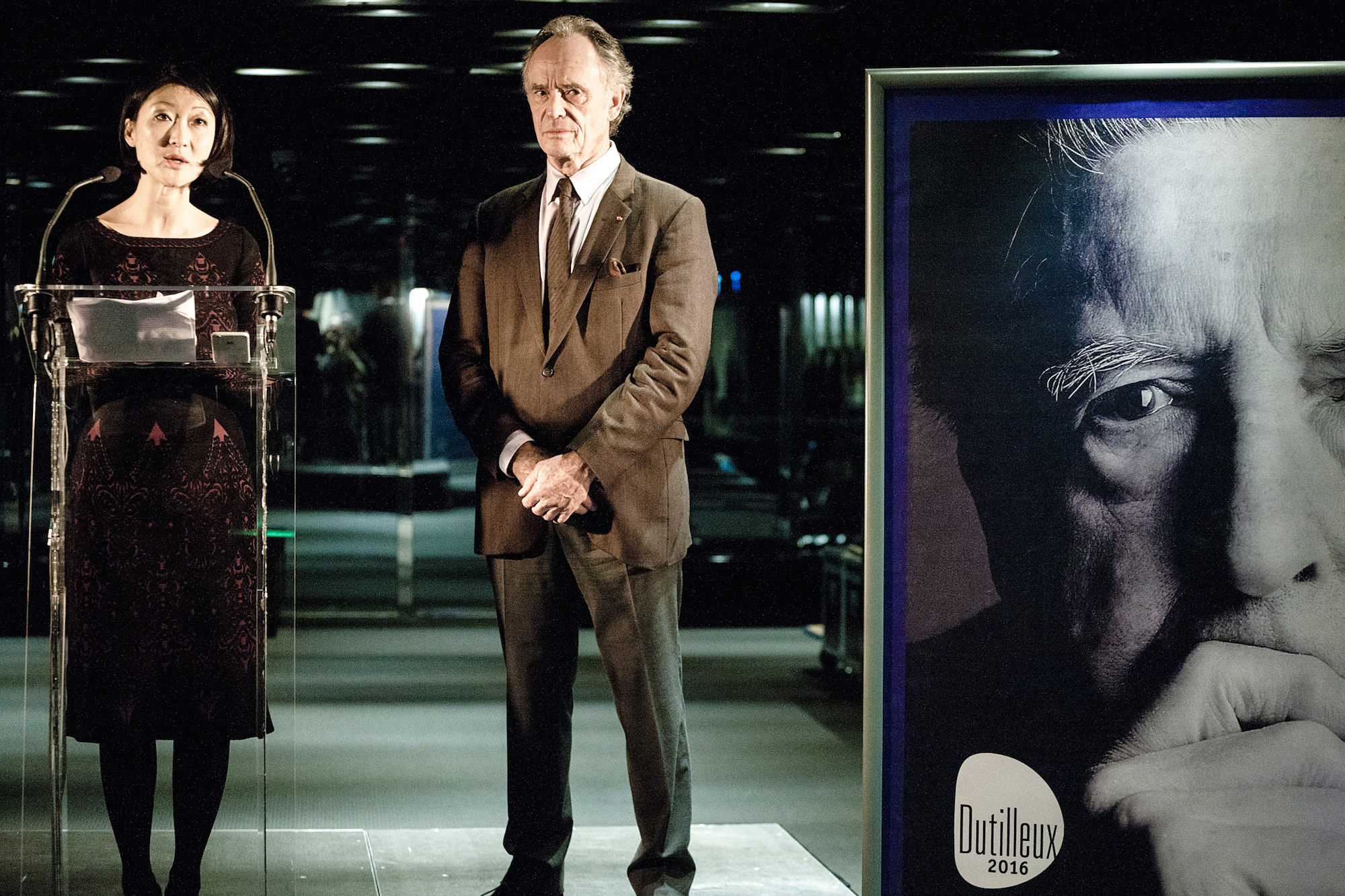
Henri Dutilleux's music was often influenced by art and literature, such as by the works of the painter Vincent van Gogh, poet Charles Baudelaire and novelist Marcel Proust. Most of his works have a dreamlike, highly poetic quality, which makes them relatively more accessible than those of many other post-World War II composers.

the overall organisation of the different movements or the spatial distribution of the various instruments but is also apparent in the music itself (themes, harmonies and rhythms mirroring, complementing or opposing each other). This is particularly obvious from an "external" point of view i.e. His music also displays a very strong sense of structure and symmetry. Some of Dutilleux's trademarks include very refined orchestral textures, fluid and intricate rhythms, a preference for atonality and modality over tonality, the use of pedal points that serve as atonal pitch centers and "reverse variation" by which a theme is not exposed immediately but rather revealed gradually, appearing in its complete form only after a few partial, tentative expositions. His music also contains echoes of jazz as can be heard in the double bass introduction to his First Symphony and his frequent use of syncopated rhythms. Rather, his works merge the traditions of earlier composers and post-World War II innovations and translate them into his own idiosyncratic style. As an independent composer, Dutilleux always refused to be associated with any school. While he always paid attention to the developments of contemporary music and incorporated some serialist techniques into his own compositions, he also denounced the more radical and intolerant aspects of the movement. His attitude towards Serialism was more problematic. Henri Dutilleux's music extends the legacies of earlier French composers like Debussy and Ravel but was also clearly influenced by Béla Bartók and Igor Stravinsky. His students include French composers Gérard Grisey and Francis Bayer, Canadian composer Jacques Hétu, British composers Kenneth Hesketh and Andrew McBirnie, and American composers Derek Bermel and David S. He was appointed to the staff of the Paris Conservatoire in 1970 and was composer in residence at Tanglewood in 1995. He served as Professor of Composition at the École Normale de Musique de Paris from 1961 to 1970. Henri Dutilleux worked as Head of Music Production for French Radio from 1945 to 1963. He worked for a year as a medical orderly in the army and then came back to Paris in 1940 where he worked as a pianist, arranger and music teacher and in 1942 conducted the choir of the Paris Opera. Henri Dutilleux won the Prix de Rome in 1938 for his cantata L'Anneau du Roi but did not complete the entire residency in Rome due to the outbreak of World War II. There from 1933 to 1938 he attended the classes of Jean and Noël Gallon (harmony and counterpoint), Henri-Paul Busser (composition) and Maurice Emmanuel (history of music) at the Paris Conservatoire. Although his output was relatively small, its high quality and originality won international praise.Īs a young man, Henri Dutilleux studied harmony, counterpoint and piano with Victor Gallois at the Douai Conservatory before leaving for Paris.

His work also includes a Piano sonata, two symphonies, the Cello concerto 'Tout un monde lointain' (A whole distant world), the VIolin concerto 'L'arbre des songes' (The tree of dreams) and the string quartet 'Ainsi la nuit' (Thus the night).Henri Dutilleux was one of the most important French composers of the second half of the 20 th century, producing work in the tradition of Maurice Ravel, Claude Debussy, and Albert Roussel, but in a style distinctly his own. Henri Dutilleux was internationally acclaimed for his work, winning prizes such as the Gold Medal of the Royal Philharmonic Society and the UNESCO's International Rostrum of Composers, among many others.

A quotation from Bartok's piece 'Music for Strings, Percussion, and Celesta' can be noticed at the end of the first verse. The whole set requires the lowest strings of the Cello to be turned lower: G string to F-sharp and C string to B-flat. Henri Dutilleux composed the first part of this volume for the celebration and added the final two pieces later in 1976. It was first performed in an audition by the latter in 1982. "Written on the occasion of Paul Sacher's birthday, this 3 Strophes in the name of Sacher features three Cello pieces composed by Henri Dutilleux and reviewed by Mstislav Rostropovitch.


 0 kommentar(er)
0 kommentar(er)
